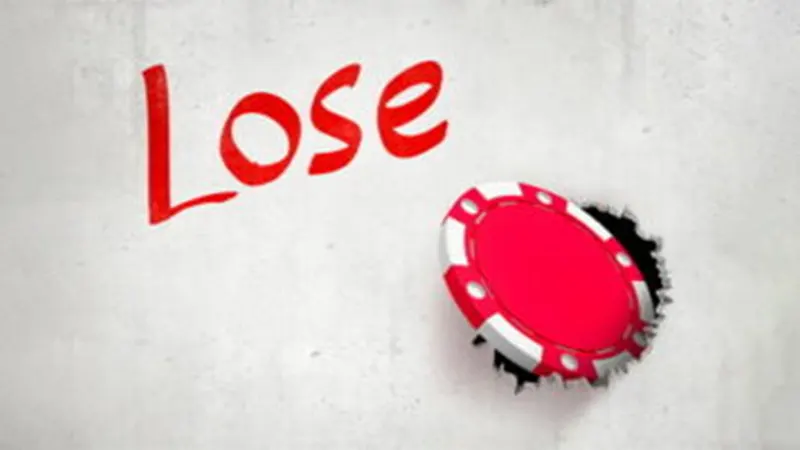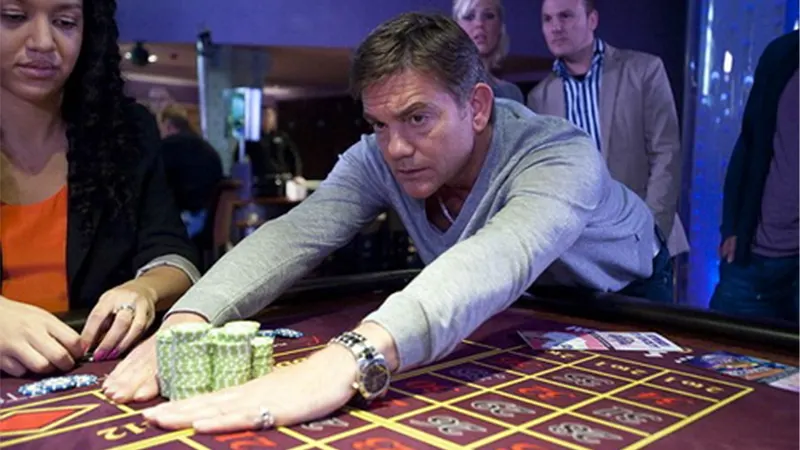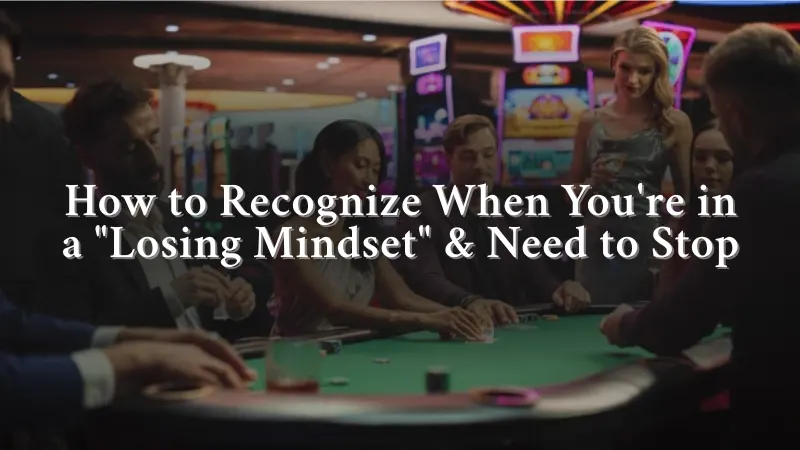You’re playing, losing a few hands in a row. Instead of stopping, you increase your bets, click faster, and feel the heat rising. This isn’t normal play anymore—you’ve entered the “losing mindset,” the most dangerous psychological trap in gambling.
When emotions take over, every decision becomes about recovery rather than strategy. This mindset destroys more bankrolls than bad luck ever could. This article will help you recognize the warning signs and escape before it’s too late. Mastering Emotions in gambling isn’t just about protecting your money—it’s about maintaining control when it matters most.
What is the “Losing Mindset”?
The losing mindset represents a fundamental shift in your mental approach to gambling, transforming you from a strategic player into an emotional reactor. In this state, your primary focus narrows to a single, overwhelming objective: recovering your losses at any cost. This tunnel vision eliminates the careful consideration, risk assessment, and strategic thinking that characterize successful gambling, replacing these tools with desperation and increasingly poor decision-making.
Several key characteristics define the losing mindset and distinguish it from normal gameplay fluctuations. First, you lose emotional control, allowing frustration, anger, and desperation to drive your decisions rather than logic and strategy. Your betting patterns become erratic, often involving progressively larger wagers that bear no relationship to your original betting strategy or bankroll management plan. The careful, methodical approach that may have served you well initially gets abandoned in favor of impulsive, reactive play.

Physical symptoms often accompany this mental shift. You might find yourself betting faster, skipping the observation periods that once helped you make informed decisions, or experiencing physical tension manifested as tight shoulders, clenched jaw, or rapid heartbeat. The game stops being enjoyable and becomes a source of stress, yet you feel compelled to continue playing despite the obvious negative impact on your wellbeing.
The danger of the losing mindset cannot be overstated because it represents the point where gambling transitions from a calculated risk to a compulsive behavior. In this state, players routinely violate their own rules, exceed their predetermined limits, and make increasingly desperate bets that accelerate their losses. This psychological trap has destroyed more gambling careers than bad luck ever could, making the ability to recognize and escape it essential for anyone serious about long-term success.
Clear Signs You’re in a Losing Mindset
The most obvious indicator of a losing mindset is escalating bet sizes in response to losses, but this escalation isn’t based on strategic considerations—it’s driven by emotional desperation. When you find yourself doubling or tripling your usual bet amounts simply because you “need to win back” what you’ve lost, you’ve crossed the line from strategic play into emotional reaction. This pattern typically starts small but accelerates rapidly, with each loss creating more pressure to bet bigger on the next hand.
Loss of patience manifests as rapid-fire betting without proper consideration of each decision. You start clicking or betting immediately when options become available, skipping the observation and analysis phases that once characterized your play. This impatience often extends to ignoring useful information like game patterns, other players’ behaviors, or statistical indicators that you would normally consider essential to your decision-making process.

Perhaps the most dangerous sign is the emergence of magical thinking—the belief that you can somehow predict or control outcomes through intuition or superstition. You might catch yourself thinking “this hand has to win” or “I’m due for a victory” despite understanding intellectually that each round is independent. This type of thinking represents a complete abandonment of the probabilistic reasoning that effective gambling requires.
The refusal to accept natural stopping points represents perhaps the most dangerous characteristic of the losing mindset. Even when you’ve clearly exceeded your predetermined loss limits or played far longer than you initially intended, the thought of ending the session while behind feels unbearable. This inability to walk away while losing is what transforms manageable setbacks into catastrophic losses.
Consequences of Not Stopping in Time
The most immediate and obvious consequence of failing to recognize and interrupt a losing mindset is complete bankroll destruction. The escalating bet sizes characteristic of emotional play can eliminate weeks or months of careful profit accumulation in a single session. Unlike strategic losses, which are typically limited and manageable, losing mindset sessions often continue until no more money remains available to bet. This isn’t just about losing your gambling funds—players in this state frequently exceed their gambling budgets and begin using money allocated for essential expenses.
These emotional consequences rarely remain contained to gambling activities. The stress, frustration, and self-criticism generated by losing mindset sessions frequently spill over into other areas of life, affecting relationships with family and friends, job performance, and overall mental health. Partners and family members often bear the brunt of the irritability and mood swings that follow significant gambling losses, creating relationship strain that can persist long after the financial damage has been addressed.
Perhaps most dangerously, experiencing a losing mindset session without learning to prevent future occurrences often leads to a destructive cycle. The financial pressure created by the losses generates a need to “win back” the money, which increases the likelihood of future emotional play. Each subsequent losing mindset episode becomes easier to trigger and more difficult to escape, creating a downward spiral that can ultimately destroy both financial stability and personal relationships.
How to Extract Yourself from a Losing Mindset
The most effective strategy for escaping a losing mindset involves establishing personal warning signals that trigger automatic responses before the situation becomes critical. For example, you might implement a rule that losing three consecutive hands requires a mandatory three-minute break from play. During this break, step away from your computer or device entirely—go to another room, splash cold water on your face, or perform some other physical activity that breaks the mental loop you’ve fallen into.
Maintaining a detailed gambling journal serves multiple purposes in combating losing mindset episodes. Record not just your wins and losses, but also your emotional state throughout each session, any rule violations you noticed, and the circumstances that led to ending each session. Over time, this data will reveal patterns in your behavior, helping you identify the specific triggers that lead to emotional play. Many players discover that certain times of day, particular types of stress, or specific game situations consistently precede losing mindset episodes.

Perhaps most importantly, approach each gambling session with clearly defined objectives that extend beyond simply making money. Frame your goals in terms of entertainment, skill development, or stress relief rather than financial necessity. When your primary motivation is enjoyment or learning rather than profit, you naturally maintain better emotional distance from individual outcomes. This perspective makes it much easier to recognize when your mental state has shifted and you need to step away from the game.
Playing at 91 Club: Mastering Psychology with Support Tools
One of the significant advantages of online platforms like 91 Club is the availability of practice modes that allow you to observe your own behavior without the pressure of real money at stake. Use these demo modes not just to learn game mechanics, but to study your own psychological responses to winning and losing streaks. Pay attention to how your decision-making changes when you’re behind, even when playing with virtual currency. This self-awareness training proves invaluable when you transition to real money play.
Online play offers a crucial advantage over casino environments: the ability to exit immediately without social pressure or logistical complications. In a physical casino, leaving often involves cashing out chips, potentially long walks to the exit, and the social awkwardness of abandoning a table mid-session. Online, you can step away from the game instantly the moment you recognize danger signs. This accessibility makes it much easier to implement and maintain the strict boundaries necessary for emotional control and Mastering Emotions in gambling situations.
Knowing When to Stop Means You’re Already Winning
The most successful players are those who can honestly assess their own psychological state and have the courage to walk away when their emotions begin to override their judgment. Whether you’re playing slots, card games, or any other option available at 91 Club, developing the habit of regular emotional check-ins with yourself will prove far more valuable than any betting strategy or system. When you feel your psychology beginning to shift off its normal rhythm, when frustration starts to cloud your judgment, or when the urge to “get even” becomes stronger than the desire to play well—that’s precisely when you should recognize that stepping away isn’t admitting defeat, it’s demonstrating the kind of emotional mastery that ensures you’ll be able to return and play another day with your bankroll and dignity intact.

